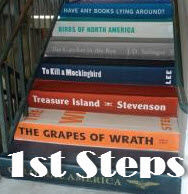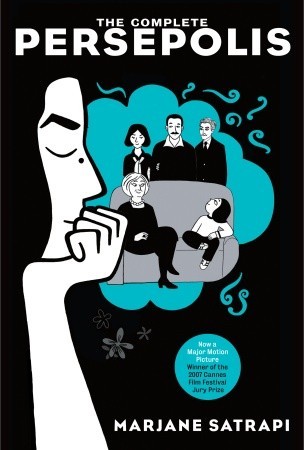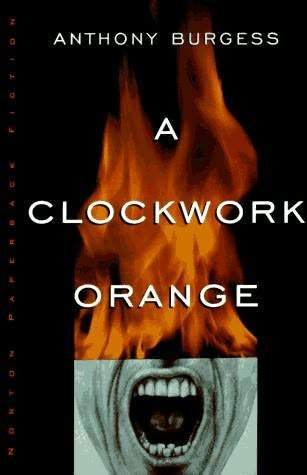 Title: The Sorrows of Young Werther (Goodreads)
Title: The Sorrows of Young Werther (Goodreads)
Author: Johann Wolfgang von Goethe
Translator: David Constantine
Published: Oxford World's Classics, 1771
Pages: 160
Genres: Classic
My Copy: Paperback
Buy: Amazon, Book Depository, Kindle (or visit your local Indie bookstore)
The Sorrows of Young Werther is an epistolary novel that has influenced the Romantic Movement. Often known as the original ‘emo’, a term that I hate, this novel is a semi-autobiographical novel that brought huge success to Johann Wolfgang von Goethe. The novel is a collection of letters written by Werther to his friend Wilhelm. These letters are an intimate account of his attraction towards the beautiful Lotte; a young woman he meets in the village of Wahlheim. Despite knowing that she is already engaged to a man 11 years her senior, Werther falls for her and attempts to develop a friendship between the two in an effort to get closer to Lotte.
You can probably guess how this story goes; Werther, an artist of highly sensitive and passionate nature heading down a road that can only lead to heartbreak. I’m not one to enjoy a novel that revolves around a love triangle but when it is done properly it can be an effective plot device; I’m thinking of books like those mentioned in this post. There is no denying the cultural impact The Sorrows of Young Werther has had on the world; unfortunately the ‘Werther effect’ is the most common reference to the novel nowadays.
I’ll be honest, I wanted to read this novel because Frankenstein’s monster finds this book in a leather portmanteau along with Plutarch’s Lives of the Noble Greeks and Romans, and John Milton’s Paradise Lost which gives you an interesting insight into Frankenstein. Lives of the Noble Greeks and Romans is a series of biographies of famous men to illustrate their common moral virtues or failings, while Paradise Lost is an epic poem on creationism and the fall of man. The Sorrows of Young Werther embodies the Romantic ideals; Werther being a sensitive intellect with an obsession of nature and values emotion over reasoning. All three novels represent different themes that Shelley wants the reader to explore when reading Frankenstein.
While this may sound like a morbid and depressing novel, Goethe shows the beauty behind the tragedy. One thing I loved about this book is the wording, and permit me to post a few quotes from the book to just show you the beauty in the novel.
“Sometimes I don’t understand how another can love her, is allowed to love her, since I love her so completely myself, so intensely, so fully, grasp nothing, know nothing, have nothing but her!”
The major theme obviously is love; a look in how it can defy all logic. Werther can’t stop his heart from falling for Lotte, even if he knew it would lead to pain. The idea that the heart has more control over someone’s actions than their head is often evident in life and The Sorrows of Young Werther captures it perfectly. For me, that is what makes this novel spectacular and significant.
“I am proud of my heart alone, it is the sole source of everything, all our strength, happiness & misery. All the knowledge I possess everyone else can acquire, but my heart is all my own”
However, you can look at this novel as something other than love; the idea that Goethe is portraying the decline in Werther’s mental health is also a vital angle that needs to be considered. The reason I hate the term ‘emo’ I won’t go into at this time but Werther’s overly emotional journey could also be symptoms of a bi-polar depression, though not a known diagnosis of the time. We have to consider the idea that his joy and sorrow is not just unrequited love but a deeper issue. The love triangle would have added fuel to his depression and we cannot ignore that this could be the root cause of Werther’s sorrow.
For such a small novel, The Sorrows of Young Werther packs a huge punch. This is the type of book I can see myself reading again and again, not just because of the Romantic ideas but what it has to say about love and mental illness. I can’t help but think that The Sorrows of Young Werther is just a better version of The Catcher in the Rye, in the sense that is a journey of a self-absorbed protagonist, but maybe too difficult for high-school student. The Sorrows of Young Werther is an important book, not only did it influence the greatest literary movement we’ve seen but it still relevant today, almost 250 years later.

 Title: By Blood We Live (
Title: By Blood We Live ( Title: My Life as a Fake (
Title: My Life as a Fake ( This is the end of 2013 and what a great year we have had. Let’s have a quick look back at the year for the book club on
This is the end of 2013 and what a great year we have had. Let’s have a quick look back at the year for the book club on  I’m currently in a reading slump and about to start another semester of university. This is not a good combination; I don’t want to struggle through my reading while trying to get good grades. This is not the first time I’ve fallen into a slump and I find it so frustrating and stressful. When I finally do break out of a slump, it is so refreshing and I feel so relieved.
I’m currently in a reading slump and about to start another semester of university. This is not a good combination; I don’t want to struggle through my reading while trying to get good grades. This is not the first time I’ve fallen into a slump and I find it so frustrating and stressful. When I finally do break out of a slump, it is so refreshing and I feel so relieved. Next week I start a university course called Literature and Politics. I’m actually nervous and excited about starting this. I’ve been doing an English Literature course part time but work has been pretty full on so I’ve moved to online university. This will mean things will be a lot more flexible and should hopefully give me the time to manage both work and study without them interfering. What I wanted to share with you; the entire point of this post was my awesome reading list for the summer thanks to this course.
Next week I start a university course called Literature and Politics. I’m actually nervous and excited about starting this. I’ve been doing an English Literature course part time but work has been pretty full on so I’ve moved to online university. This will mean things will be a lot more flexible and should hopefully give me the time to manage both work and study without them interfering. What I wanted to share with you; the entire point of this post was my awesome reading list for the summer thanks to this course. When you think about the holidays, you tend to associate memories to those locations; the foods you ate, the sights you saw, the moments in your life that are special. I’m not sure if I’m a little different or if there are others but I also associate a book or two with the holidays. Now I was away in Adelaide recently and I got to thinking about this and wondered which books I might associate with this trip.
When you think about the holidays, you tend to associate memories to those locations; the foods you ate, the sights you saw, the moments in your life that are special. I’m not sure if I’m a little different or if there are others but I also associate a book or two with the holidays. Now I was away in Adelaide recently and I got to thinking about this and wondered which books I might associate with this trip. Title: Monster (
Title: Monster (
 Persepolis by Marjane Satrapi
Persepolis by Marjane Satrapi Fahrenheit 451 by Ray Bradbury
Fahrenheit 451 by Ray Bradbury
 A Clockwork Orange by Anthony Burgess
A Clockwork Orange by Anthony Burgess 

 Title: The Machine (
Title: The Machine (